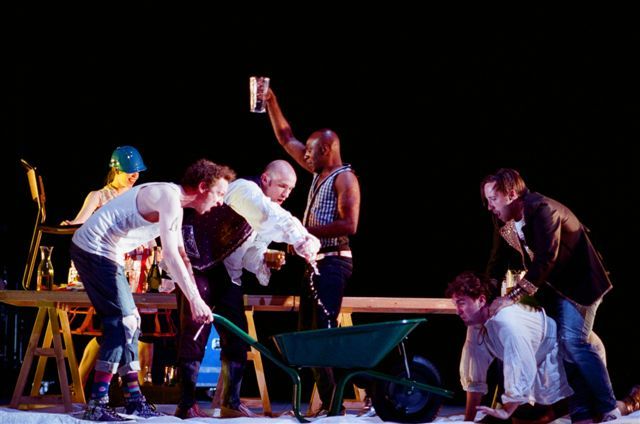The stage of the Barbican is a-twitter with the murmurs of 18th Century gossip. Despite the gap of many decades, however, a regular reader of the tabloid press or of their doctor's selection of magazines will find themselves in familiar territory here.

In these times of super-injunctions, we could easily be mistaken into believing that we have invented everything in terms of intrigue and rumours and shameful secrets, but Richard Brinsley Sheridan's play The School for Scandal shows all too clearly that this is not the case and that human nature probably doesn't change that much in over 200 years.
The well-known play shows the turpitudes of a coterie of bored aristocrats trying to while away the time with various games of back-stabbing, intrigue and assorted misdeeds. Some will receive their humiliating comeuppance, others will see the light and be reformed, while others yet will continue unchanged and unmoved.
Nothing your regular watercooler-attendee would find outlandish, really.
But while the gossiping is similar, it is clear that our ancestors had a longer attention-span than we have and, in that, Deborah Warner's staging proves most helpful.
Obviously aware that such a staple of the theatrical repertoire could easily grow stale and off-putting for modern audiences, Warner, who is known for this sort of unorthodox approach, has tried to bring the play kicking and screaming into the 21st Century by paradoxically introducing some further distance between the modern audience and the 18th Century play.
She uses a pared-down set peppered with meta-referential touches (such as placards with stage directions in the hand of Sheridan), mixes modern and period elements of costumes, and adds a strident soundtrack of up-to-the-minute pop music between the scenes.
As a result, we are aware all along that we are watching a spectacle, seemingly irretrievably disconnected from our own experience, which, of course, it isn't.
This irreverent production has irked many critics who were no doubt already familiar with the play, actually pushing Warner to respond to their criticism. For a new eye, however, one perhaps intimidated by such a big name of British theatre, this could prove the opportunity for a gentle initiation into the arcades of 18th Century social satire.
If you want to see what the fuss is all about, The School for Scandal on at the Barbican until the 18 June.



